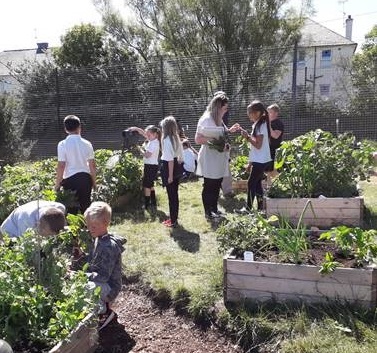
Food is essential to human survival, yet food production is one of the main factors undermining the environment supporting all living forms. Livestock farming alone uses more than 70% of agricultural land overall, contributing to carbon emissions and loss of biodiversity from soil erosion and deforestation. As noted by the Food and Agriculture Organisation “climate change, increased demand for food, rise in food prices, higher fuel input cost and loss of agriculture skills and human resources” are key issues which affect quality, availability and access to healthy food for people in the years to come. As this situation has profound implications for young people, this project aimed to bring the topic of food to the attention of practitioners in education. It asked: what place does education about food play in building young people's awareness about global environmental problems? What conditions, approaches and knowledge would enable young people in school to play an active role in matters related to food, decision-making and power?
The programme consequently aimed to develop an operational framework for enabling practitioners in schools to engage with food as a central dimension in the lives of all young people, and as a key topic of Learning for Sustainability. Three workshop events were held involving stakeholders from different sectors to share experiences of food growing and food education both in Scotland and internationally, with a view to identifying current needs and opportunities for synergy between policy, research and practice.